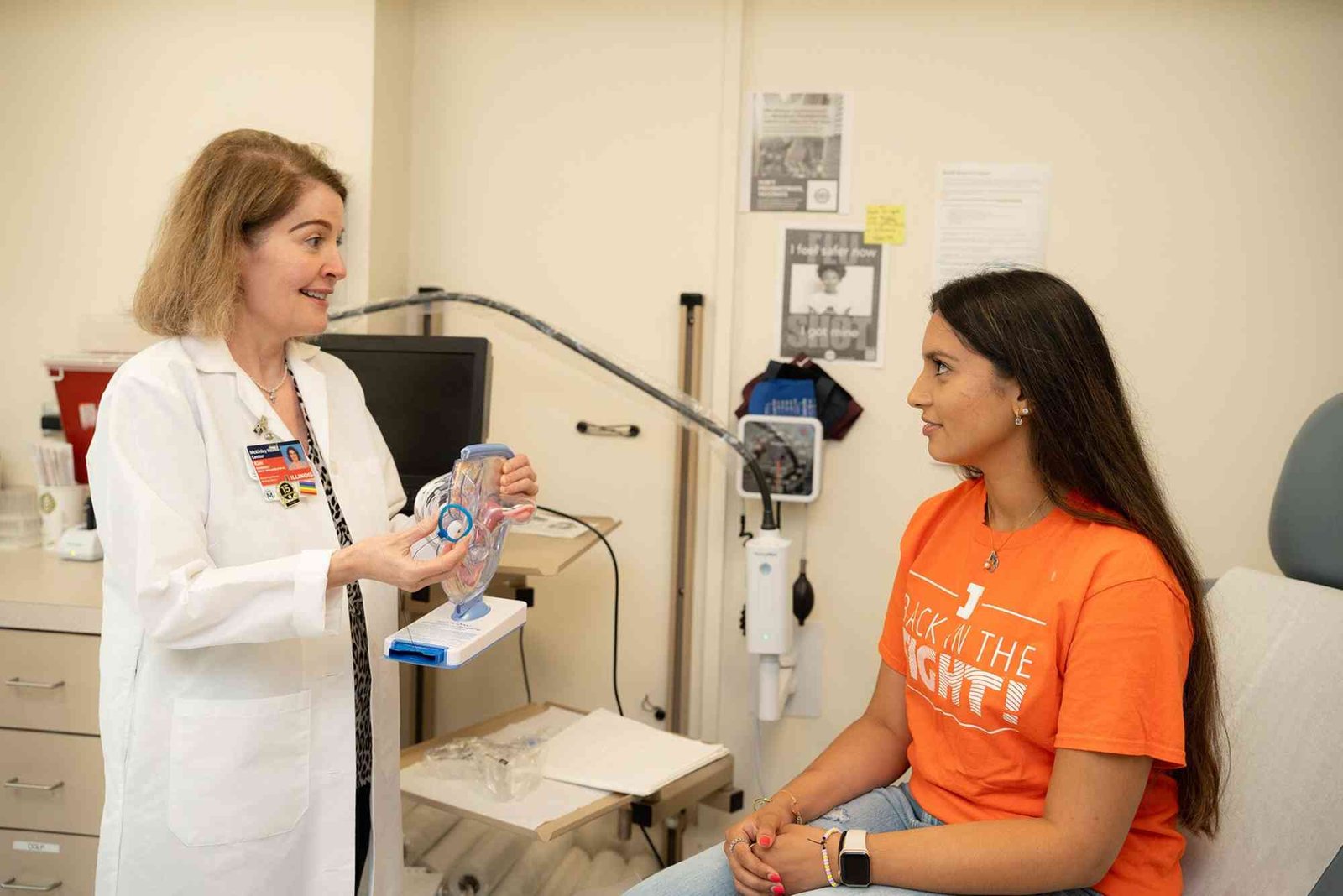Introduction
When it comes to personal health, women deserve care that’s specialized, respectful, and compassionate. Understanding how to a preferred womens health center operates can make all the difference in finding the right medical care for every stage of life. From preventive screenings and reproductive health to wellness programs and counseling, a preferred women’s health center focuses on comprehensive care tailored to women’s unique needs. In this detailed guide, we’ll explore step by step how to identify, choose, and benefit from a women’s health center that truly puts your wellbeing first.
What Makes a Preferred Women’s Health Center Different
A preferred women’s health center is not just another clinic. It’s a space where women’s physical and emotional health are prioritized in a holistic way. The key difference lies in its specialized services, patient-centered approach, and medical staff trained specifically in women’s health. These centers emphasize preventive care, personalized treatment, and long-term health management. Whether you’re visiting for a routine checkup, pregnancy care, or menopause support, the goal is always to create an environment of trust, respect, and confidentiality.
Understanding the Core Purpose
The first step in learning how to a preferred womens health center is understanding its core mission. These centers are designed to serve women of all ages and backgrounds, providing healthcare that evolves with each stage of life. From adolescence to senior years, women experience unique hormonal, reproductive, and physical changes. The center’s purpose is to address those changes through early detection, preventive care, and education. By focusing on empowerment, women’s health centers encourage patients to make informed decisions about their health and lifestyle.
Researching the Right Health Center
Before choosing a facility, take time to research available options in your area. Check the reputation, qualifications of medical staff, and patient reviews. Visit trusted resources such as A Preferred Womens to learn more about what defines a reputable women’s healthcare provider. Look for centers that offer board-certified specialists, a clean and comfortable environment, and transparent pricing. You can also consult A Preferred Womens Health resources at www.britannica.com to gain insight into professional medical standards and practices.
Booking Your First Appointment
Once you’ve identified a trusted center, the next step is booking your first visit. Many women’s health centers allow online scheduling for convenience. During the appointment, expect a comprehensive assessment that may include a medical history review, lifestyle evaluation, and physical exam. Open communication with your healthcare provider is essential. Don’t hesitate to discuss symptoms, medical concerns, or reproductive health questions. This early interaction establishes trust and ensures that your care plan aligns with your goals and comfort level.
Essential Services Offered
A preferred women’s health center provides a wide range of essential medical services to support women’s wellbeing. These may include:
-
Reproductive Health: Family planning, prenatal care, and fertility consultations.
-
Preventive Screenings: Mammograms, Pap smears, bone density tests, and blood pressure checks.
-
Hormonal Health: Menstrual regulation, menopause management, and thyroid assessments.
-
Sexual Health: STD testing, contraception options, and counseling.
-
Mental Health: Emotional wellness programs, therapy sessions, and stress management support.
By offering such a diverse set of services, women’s health centers promote a proactive approach to overall wellbeing rather than focusing only on illness treatment.
Understanding Preventive Care
Preventive care is the foundation of long-term health. In the context of how to a preferred womens health center, preventive measures include regular screenings, vaccinations, and nutritional counseling. These help detect early signs of health issues such as breast cancer, cervical abnormalities, or heart disease. Most centers also encourage annual wellness exams, which allow physicians to track changes in weight, blood pressure, and hormonal balance. By identifying risks early, you can prevent future complications and maintain vitality throughout life.
Building a Relationship with Your Provider
Establishing a relationship with your healthcare provider fosters consistency and trust. Women often face sensitive medical situations that require empathy and privacy. Choosing a doctor who listens, explains clearly, and respects your decisions makes every visit more comfortable. Over time, your provider becomes familiar with your health history and can offer tailored advice, making your care more effective. This ongoing relationship is a key reason women prefer specialized centers over general clinics.
Integrating Lifestyle and Wellness Support
A quality women’s health center also emphasizes lifestyle balance. In addition to medical treatment, you may find nutrition counseling, fitness recommendations, and mental health workshops. These wellness programs are vital for maintaining hormonal harmony, managing stress, and supporting reproductive health. Women are encouraged to adopt healthier habits — eating balanced meals, exercising regularly, and scheduling self-care routines — to prevent lifestyle-related diseases.
Understanding Insurance and Financial Options
Healthcare costs can be a major concern. Fortunately, most women’s health centers work with multiple insurance providers to make services more affordable. Before your appointment, confirm which plans are accepted and ask about any available payment options or wellness programs. Some centers even offer income-based sliding scales or special packages for prenatal and fertility care. Financial transparency ensures that you can access necessary care without unexpected burdens.
Learning About Community Programs
Many women’s health centers engage with the community through educational seminars, support groups, and outreach programs. These initiatives raise awareness about reproductive rights, maternal health, and disease prevention. Participating in community events can also provide emotional support by connecting with other women facing similar challenges. Programs like postpartum counseling and domestic health education promote not only individual wellbeing but also collective empowerment.
Making the Most of Each Visit
To get the best out of your visits, always come prepared. Bring your medical history, a list of medications, and any relevant lab results. Write down questions or symptoms beforehand so you don’t forget to mention them. During the consultation, take notes about recommended treatments or tests. A good healthcare center encourages active participation, where your feedback shapes your treatment plan. This collaborative approach ensures that the care you receive aligns with your physical and emotional needs.
The Importance of Privacy and Compassion
Women’s health often involves deeply personal topics. A preferred health center values patient confidentiality and emotional comfort above all. The staff is trained to handle delicate situations such as pregnancy concerns, infertility, or sexual health issues with empathy and discretion. Clinics that respect your privacy foster a stronger patient-doctor bond and encourage regular checkups without fear of judgment or stigma.
Technology and Modern Care
Today’s women’s health centers integrate advanced technology for accuracy and convenience. Electronic health records, telehealth consultations, and digital mammography are just a few examples. These innovations allow faster results, remote follow-ups, and easier communication between patients and providers. For working women and mothers, this convenience ensures consistent access to care without disrupting daily responsibilities.
Emotional and Psychological Wellbeing
Women’s physical health cannot be separated from emotional wellbeing. Hormonal changes, pregnancy, and social pressures can impact mental health. Most preferred women’s centers recognize this connection and include therapists or counselors on staff. Emotional support programs, mindfulness sessions, and stress management workshops help women manage anxiety, depression, or postnatal challenges effectively. This comprehensive model of care focuses on treating the person as a whole, not just the symptoms.
Why Choose a Preferred Women’s Health Center
Choosing a preferred women’s health center ensures access to a wide range of expert services under one roof. The combination of medical expertise, compassionate care, and preventive programs helps women live healthier, more confident lives. The environment is designed to make every patient feel heard and valued. For reliable information, you can always Learn How A Preferred health center builds this trust through excellence and empathy.
Common Challenges and How to Overcome Them
Some women hesitate to visit healthcare centers due to fear, cultural barriers, or misinformation. Others may struggle to find time or worry about confidentiality. Overcoming these obstacles begins with education and trust-building. Women should understand that modern health centers are safe, supportive environments where their voices matter. Online portals, telehealth, and community outreach make care more accessible than ever before.
Take the First Step Toward Better Health
Understanding how to a preferred womens health center empowers women to take control of their wellbeing with confidence. By focusing on preventive care, emotional balance, and trust-based medical relationships, these centers redefine what healthcare means for women today. Your health deserves priority, and taking that first step could change your life for the better. Whether it’s scheduling a wellness exam or joining a community program, every decision contributes to a healthier future. Don’t wait — explore A Preferred Womens and start your journey toward complete wellness today.
FAQs
Q1: What services are offered at a preferred women’s health center?
They typically offer reproductive care, preventive screenings, hormone management, sexual health services, and wellness programs.
Q2: How often should I visit a women’s health center?
It’s recommended to schedule annual checkups or more frequent visits if managing a specific condition.
Q3: Do these centers provide pregnancy and fertility support?
Yes, most offer prenatal care, fertility counseling, and postpartum services tailored to each woman’s needs.
Q4: Can I visit without insurance?
Many centers provide financial aid, flexible payment options, or discounted wellness packages.
Q5: How do I choose the best women’s health center near me?
Research certifications, read patient reviews, and visit reputable sources like A Preferred Womens Health resources at www.britannica.com for guidance.










